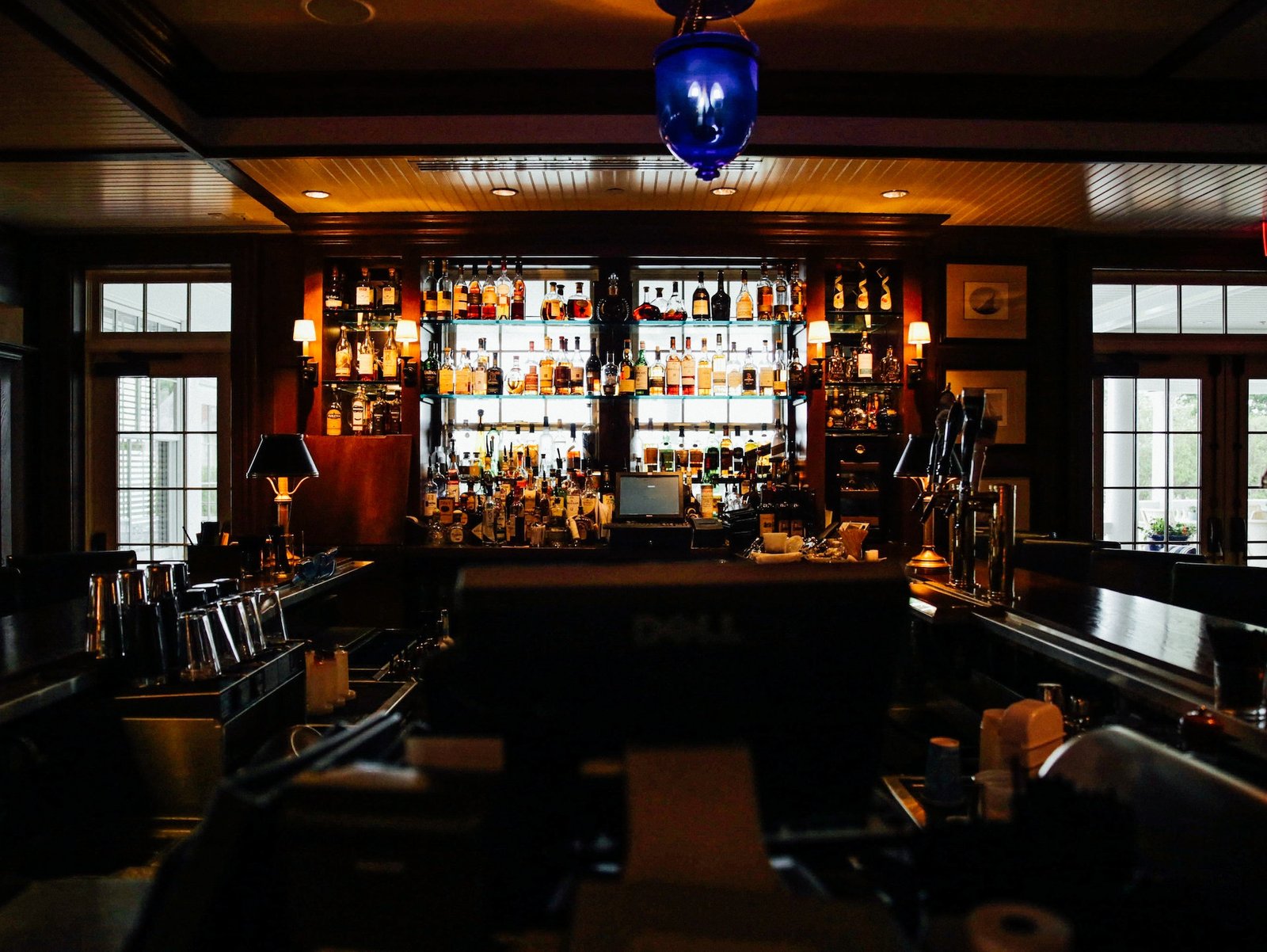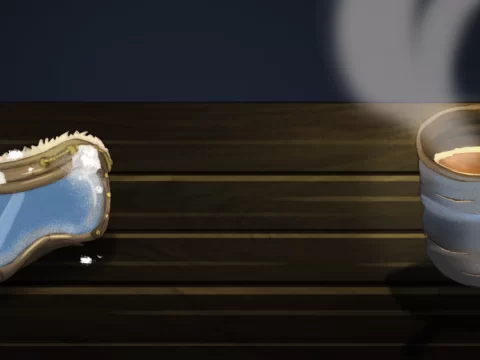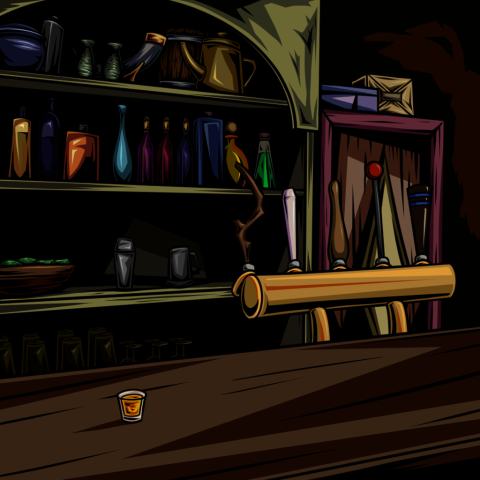I had asked some friends if they’d be interested in crafting Pub Tales to add to the collection.
To ensure that everything stayed within the same sort of continuity and The Nowhere Pub retained its basic concept, I crafted a set of writing “rules” as guidelines for what a tale could and couldn’t contain. Herein are those rules, in no particular order:
- The Bartender shall never be named. He will always have a place in the story, and some interaction with all characters present.
- The Bartender never leaves the bar. Customers may take their drinks to a table, but for refills, they will need to go back to the bar.
- All Tales must include a “scene” describing the Pub and the interior. Samples are found in all three existing Tales (best to use are the ones from The Captain’s Tale or The Warriors’ Tales). The description does not need to be verbatim, but should not change excessively or unnecessarily.
- As described in the Tales, any drink imaginable (or even unimaginable) is available. Not only that, but the alcohol (and any other ingredients) are immediately available to the Bartender. How this is possible is never to be explained. [Not all drinks need to be alcoholic, although non-alcoholic ones may serve that purpose for some other customers – which is why they’re available.]
- Likewise, sort of, all forms of currency are accepted by the Bartender (and are appropriate – and reasonable – for wherever the customer came from).
- All customers can understand each other (language), even if they, individually, use words or phrases which are only societally or socially relevant to themselves.
- No other Pub employees (if there are any) will ever be seen other than the Bartender.
- The Pub is always open and the Bartender is always on duty for the customers. [Meta: this is because the Pub is, functionally, time- and space-shifting. So, the Bartender goes off-duty when the Pub is done with whatever it’s doing, but the Pub will be sure to be in the right place and time for its next customers.]
- All Tales occur within the Pub. Any story material which occurs outside the Pub is to be limited to a character finding the Pub or necessary backstory for that character.
- Similarly, all Tales end within the Pub.
- For all customers, the time within the Pub is always linear and progressing forward. They will not time-skip (backward) for their own timeline or anyone they meet. Thus a Regular will never meet another Regular they’ve met before only, later, for the second Regular to have no idea who they are.
- No violence within the Pub. If there is a hint of violence, the Bartender will threaten to call “the Bouncer”. This will cause all violence to immediately cease. The Bouncer will never appear in a story, but tales of things the Bouncer has done in the past should be highly exaggerated to the point of functional impossibility and “you’re just making that shit up, aren’t you?” All Regulars are aware of the Bouncer (even if they’ve never encountered him) and understand that Bad Things(TM) happen to those who receive his “services”.
- Regulars are “available” for use by other authors, but their backgrounds and stories cannot be fundamentally changed by a different author. However, other authors’ Regulars cannot be the main character (or characters) of your Tales.
- One-Timers, if included in a story, is always the last character to arrive. [Meta: A Regular who opens the door to exit, opens the door to their reality. A Regular who opens the door to enter has now “reset” the door to their reality. One-Timers have no guarantee other than there is a pause in anyone else entering until they leave – either returning to their reality or joining a Regular to a different one.]
- No Regular shares a reality with any other Regulars. They are all from different worlds/realities. Similarities are acceptable, of course.
- Regulars may bring One-Timers with them as a guest, but as soon as a One-Timer leaves the Pub through “someone else’s” door, they can never return to their own reality. They have become “unstuck” in time and space.





